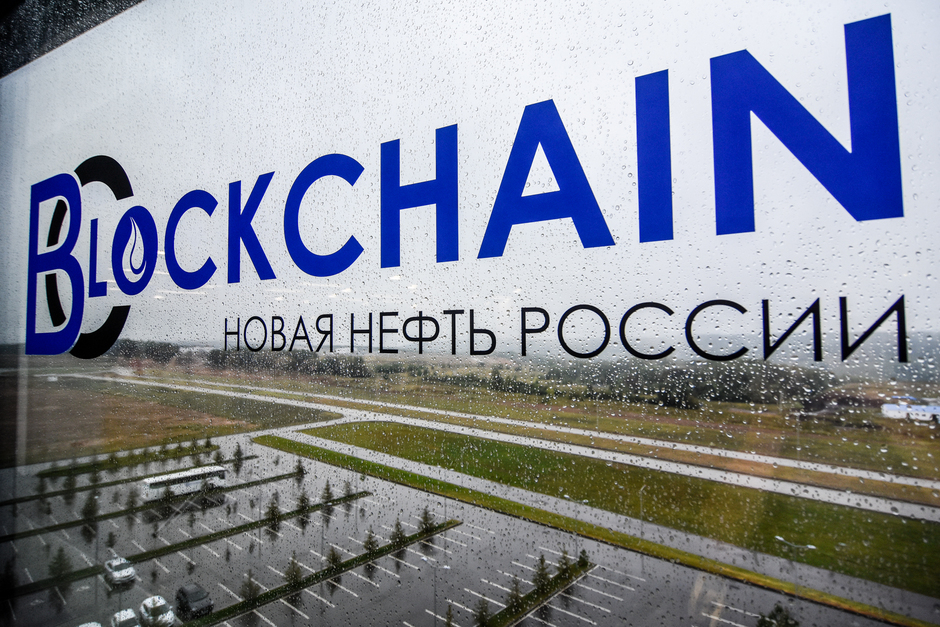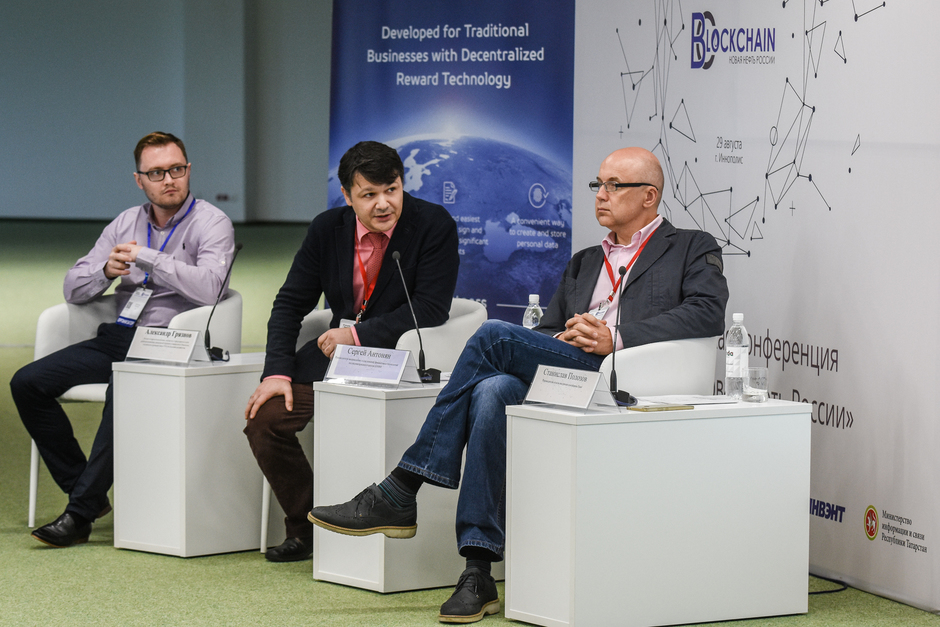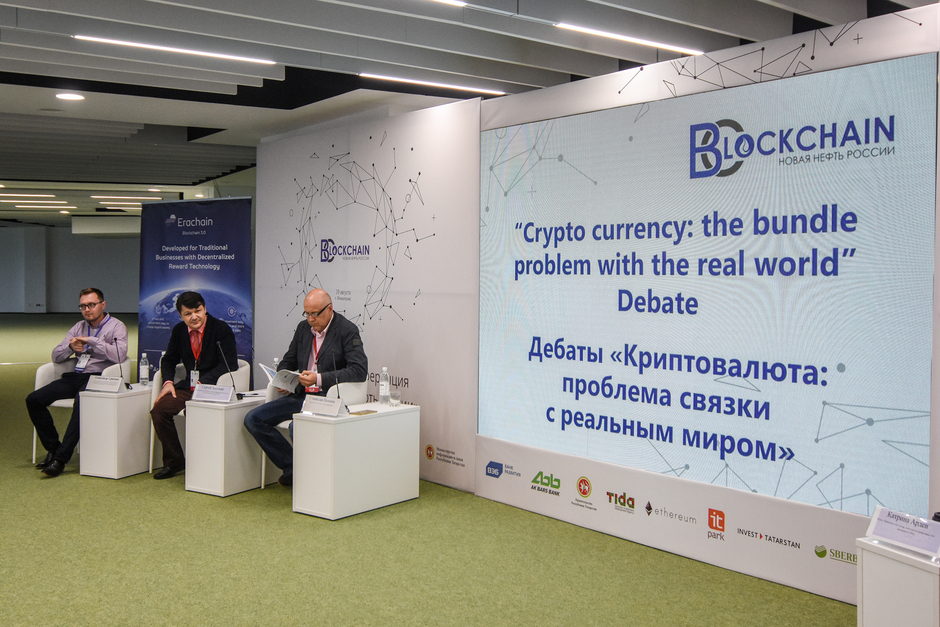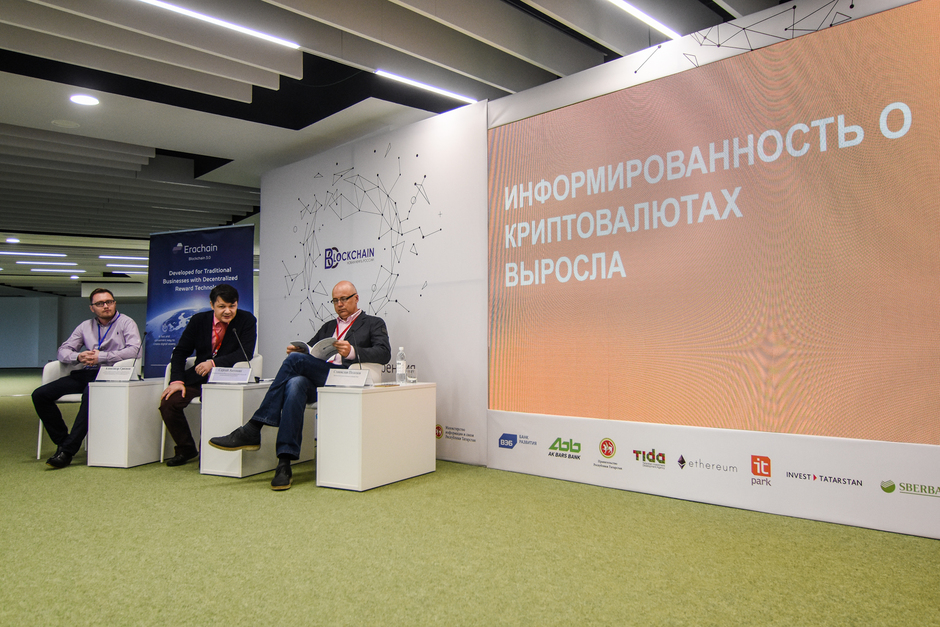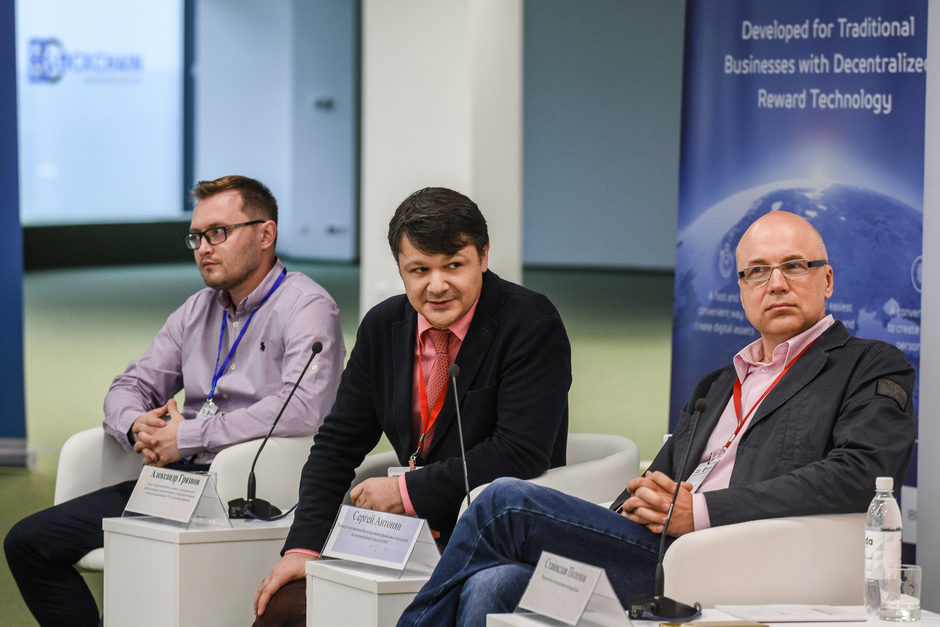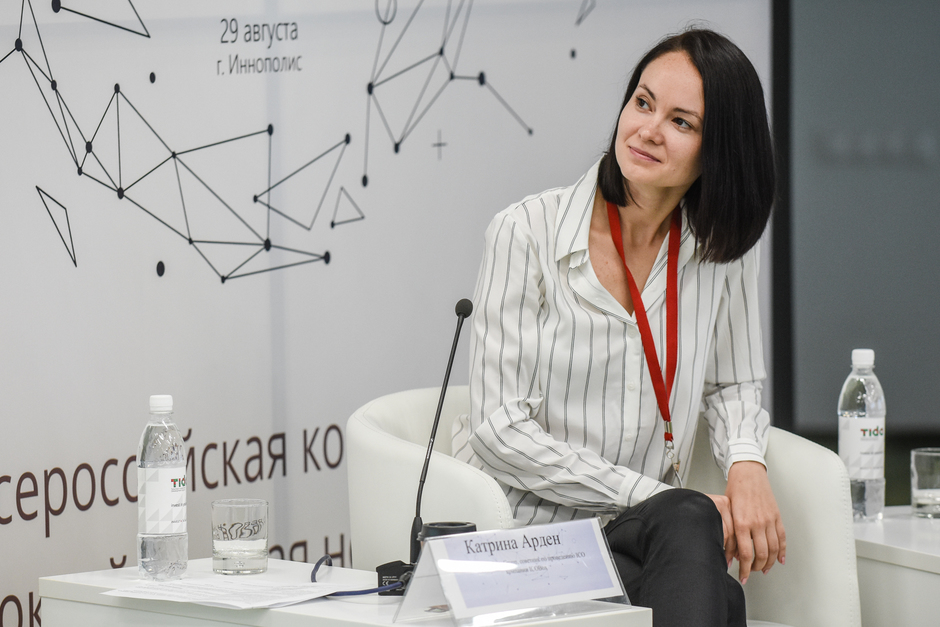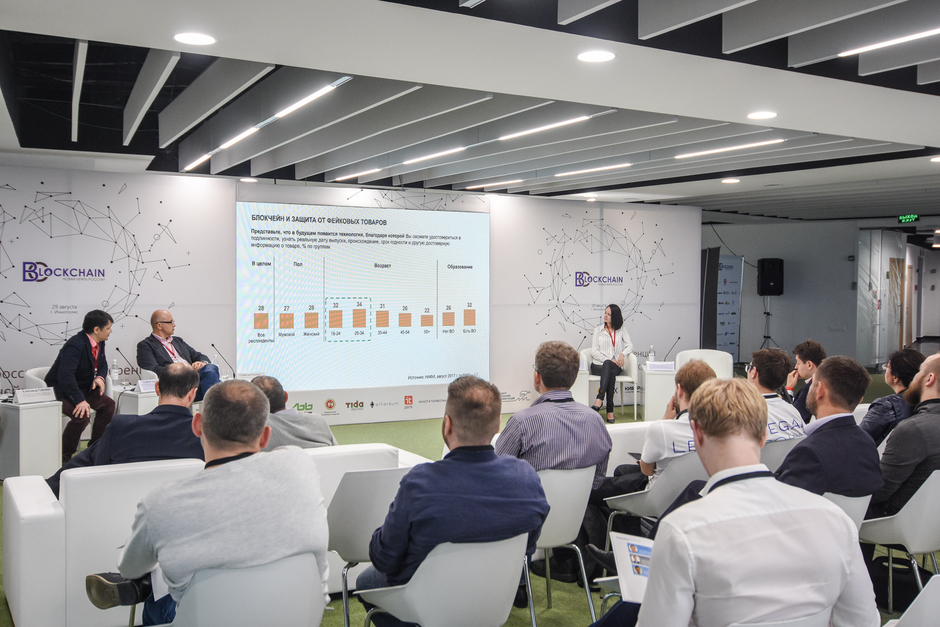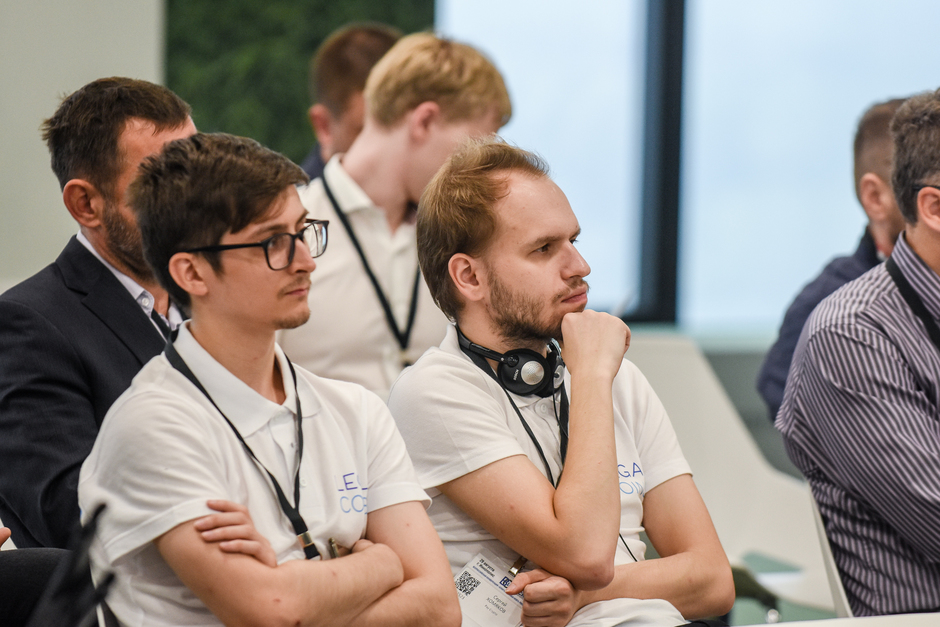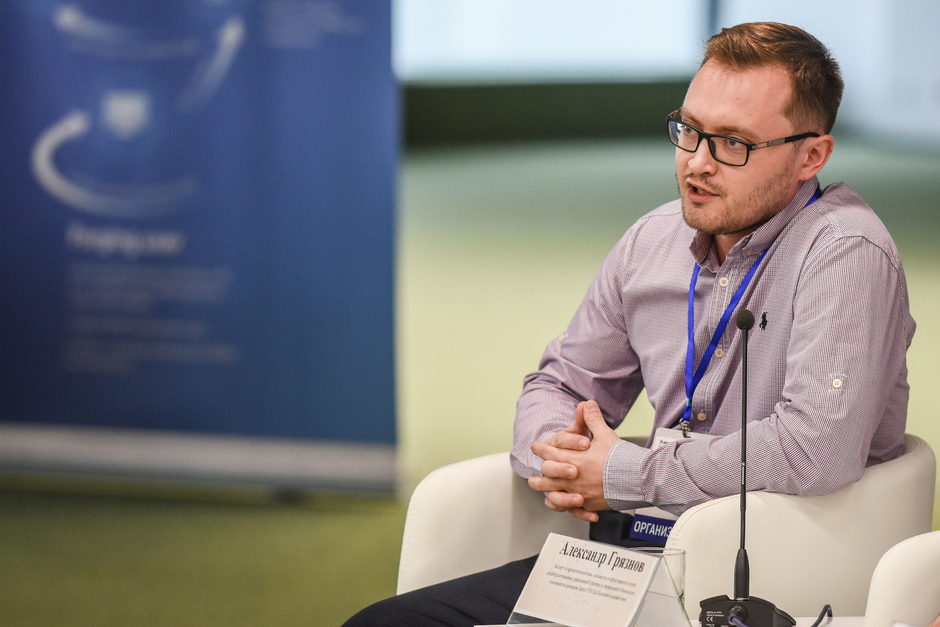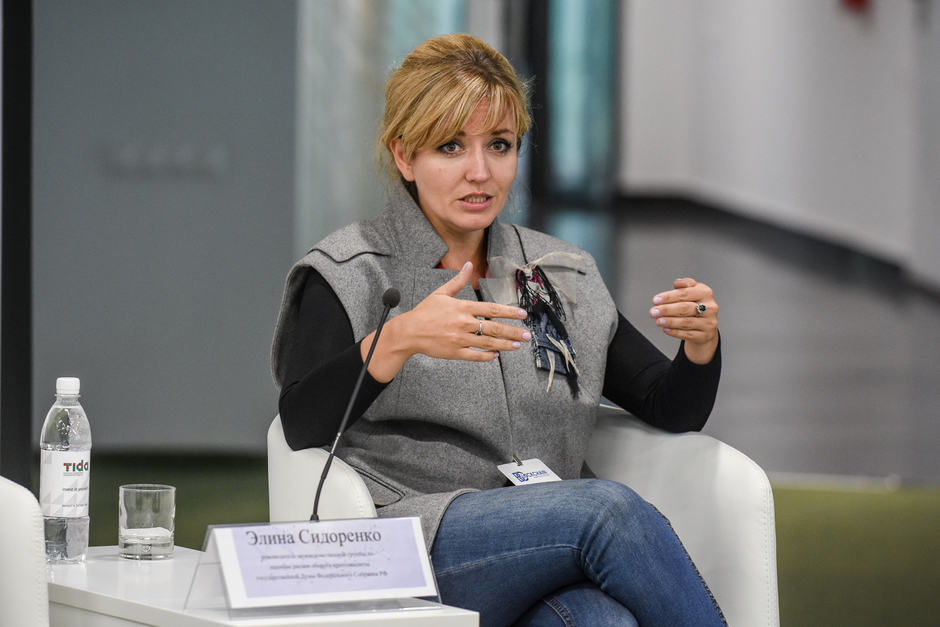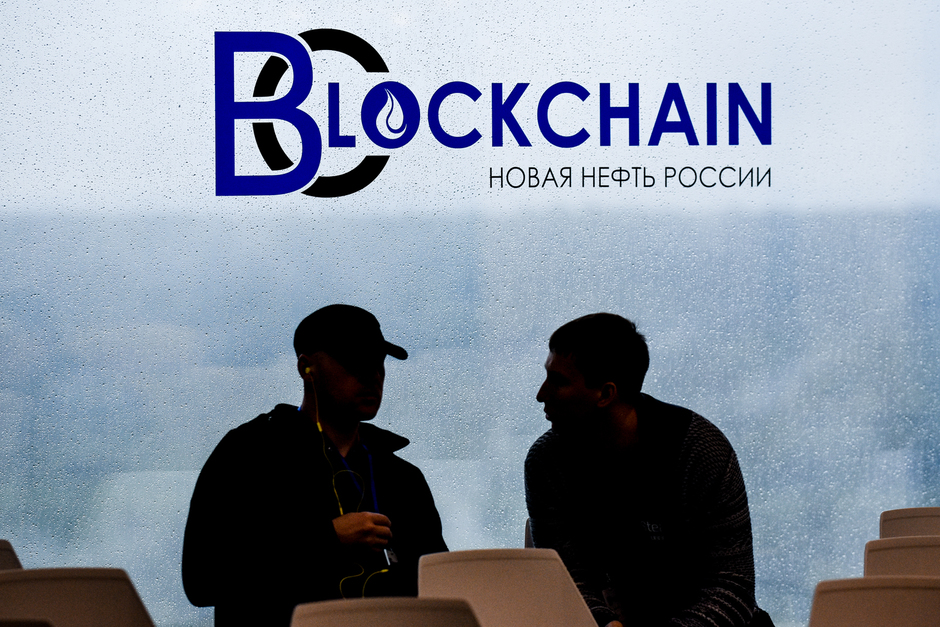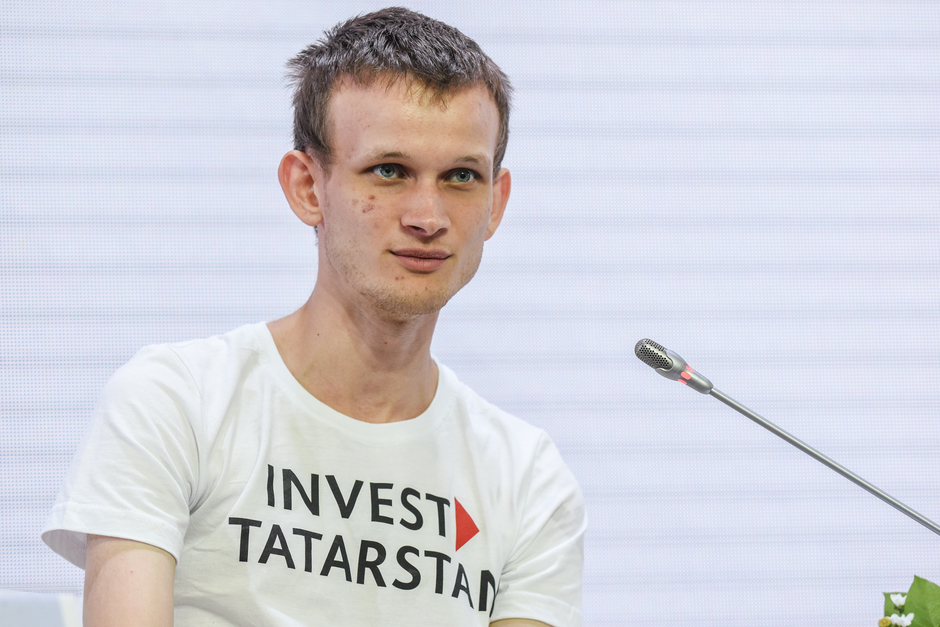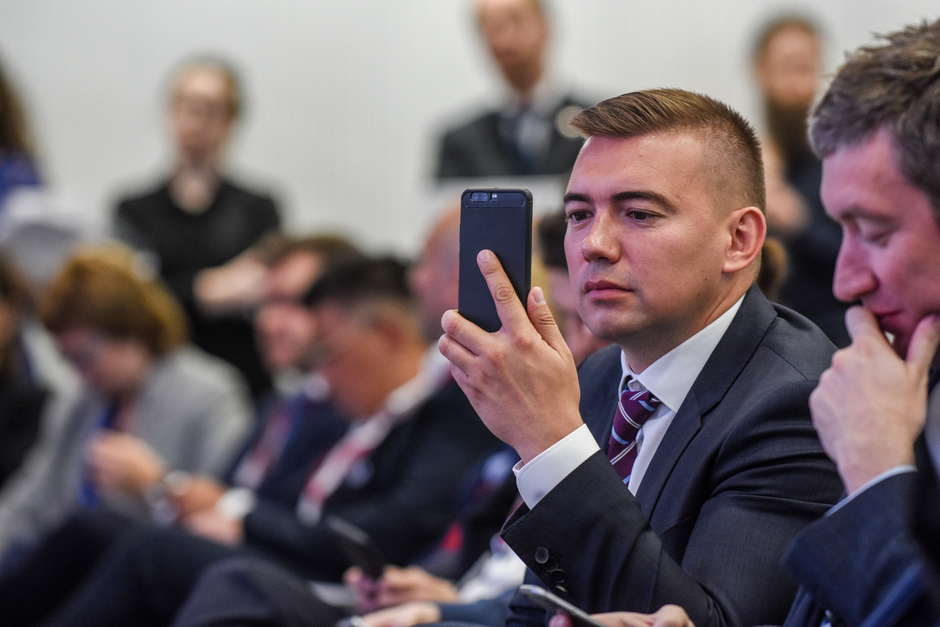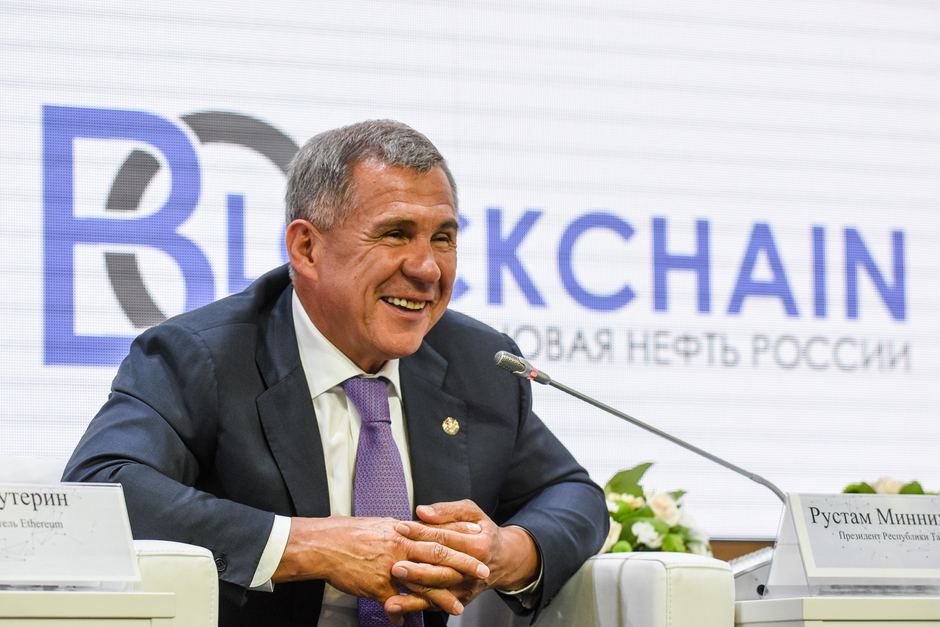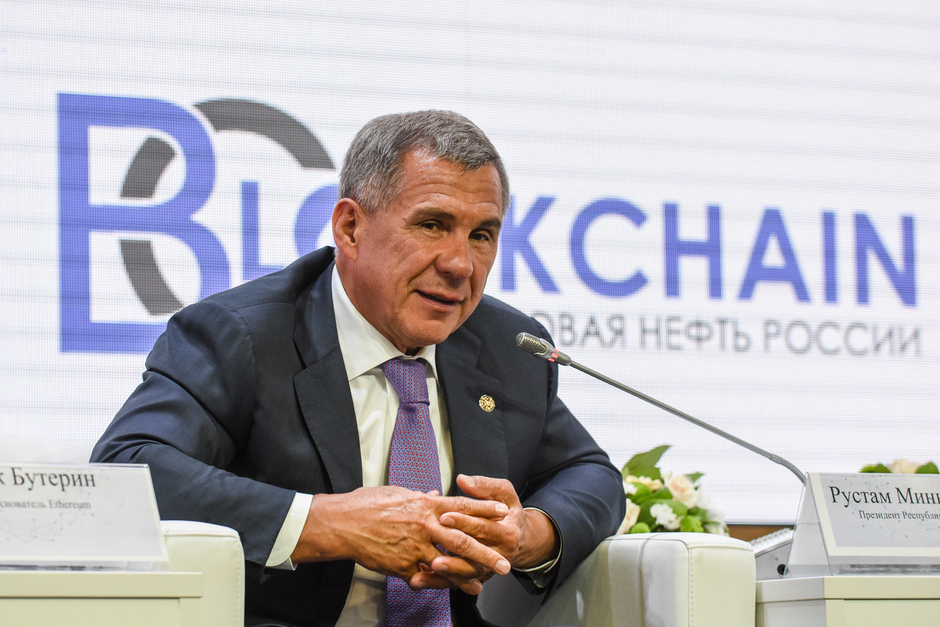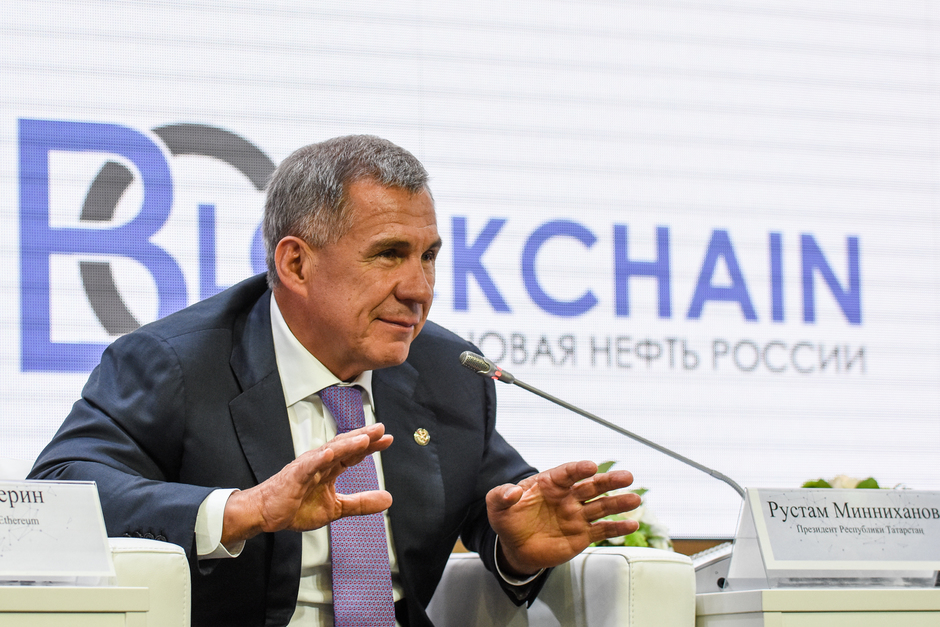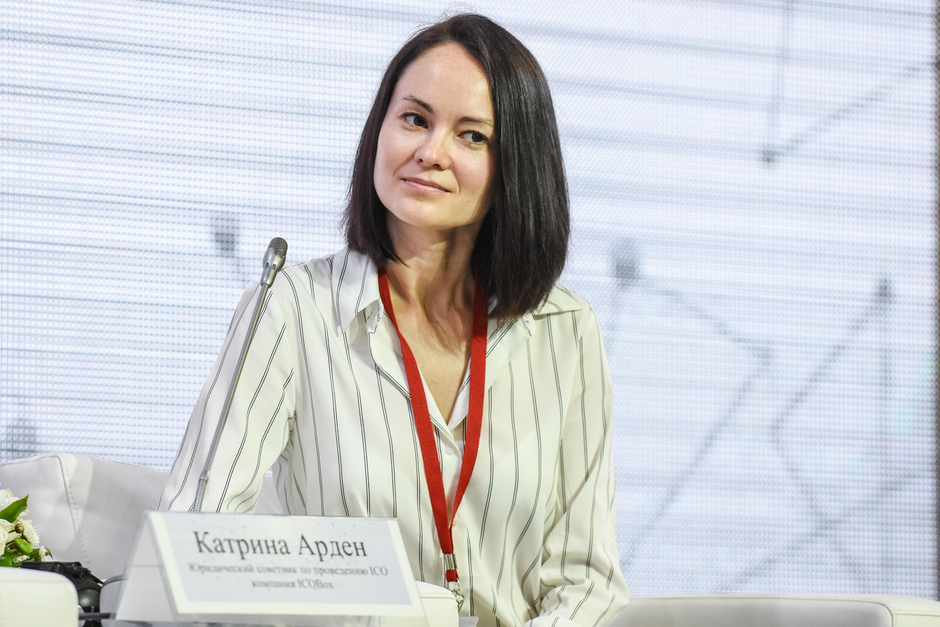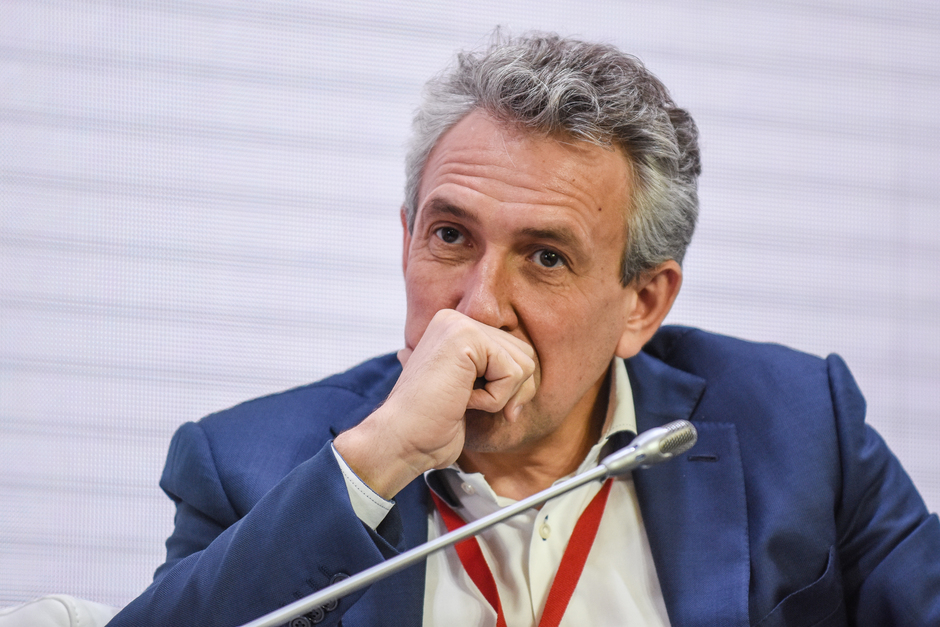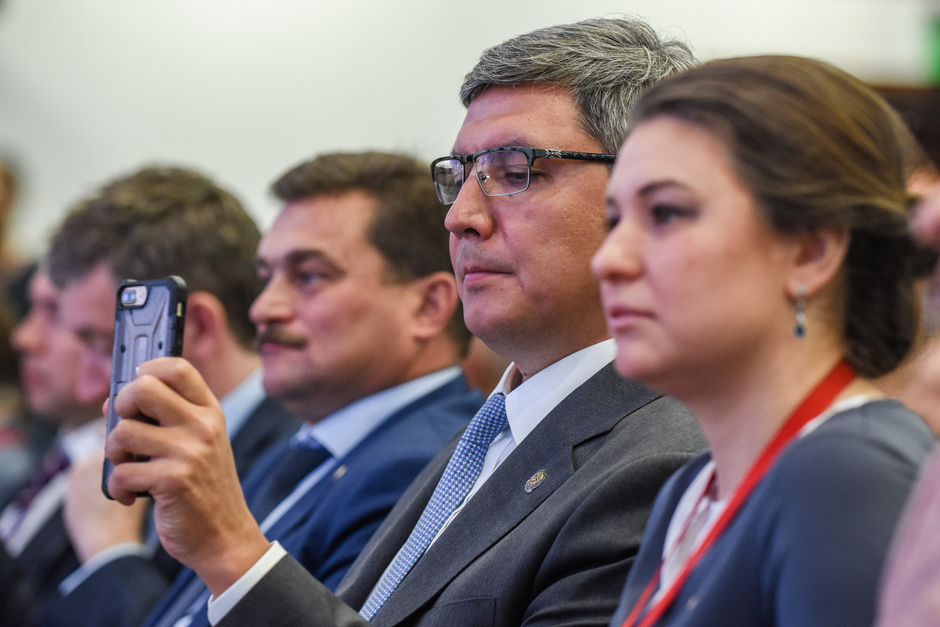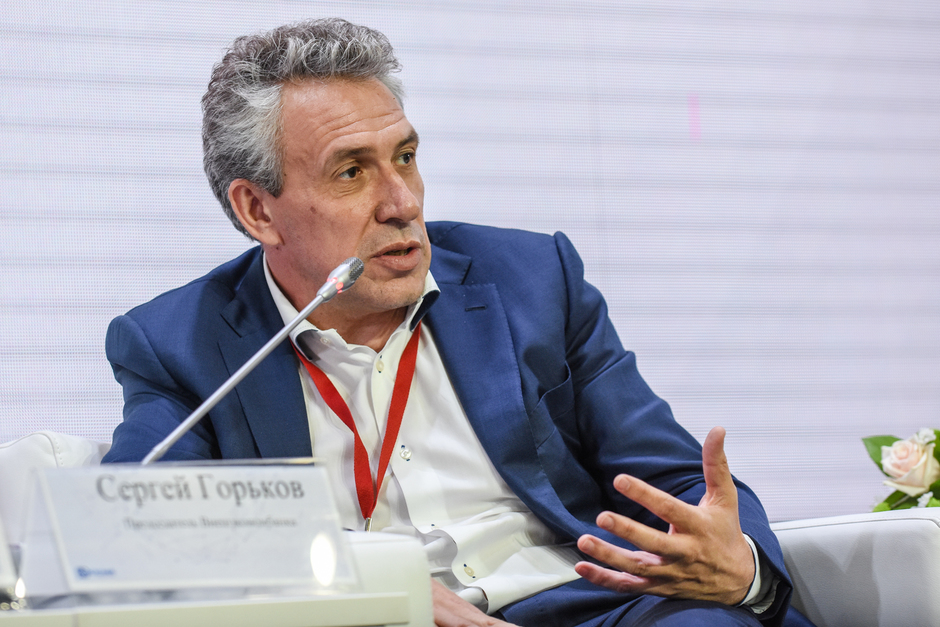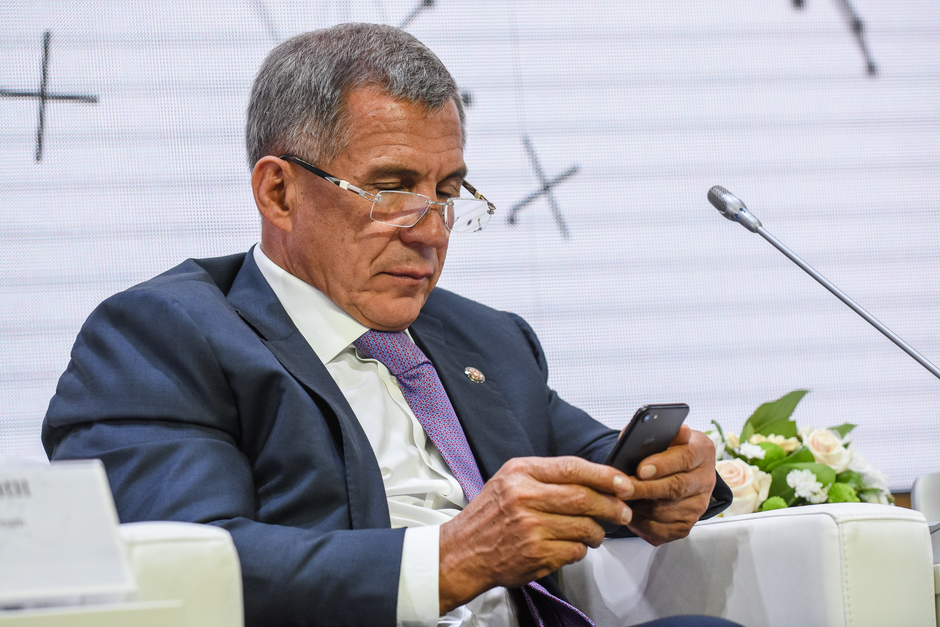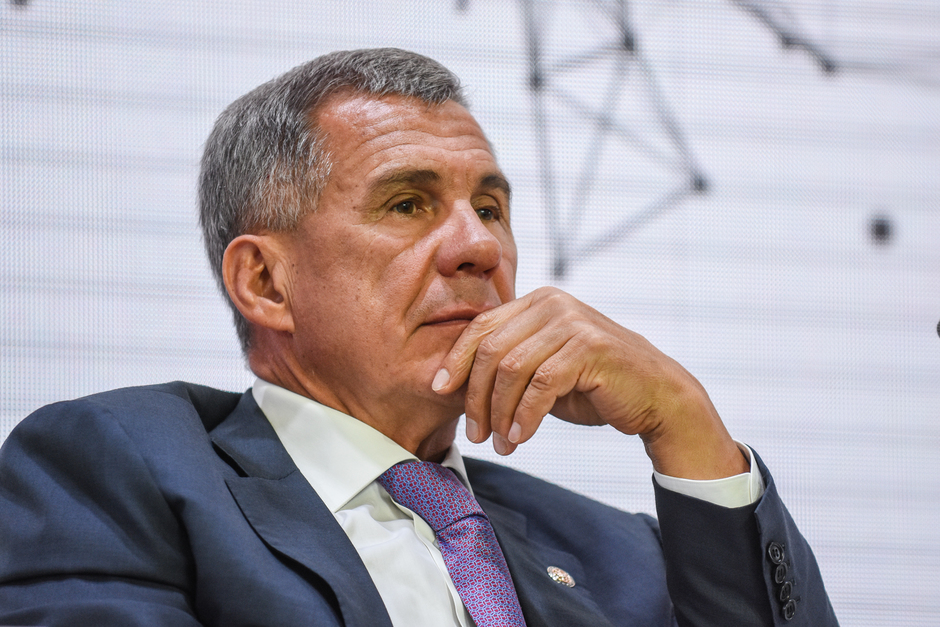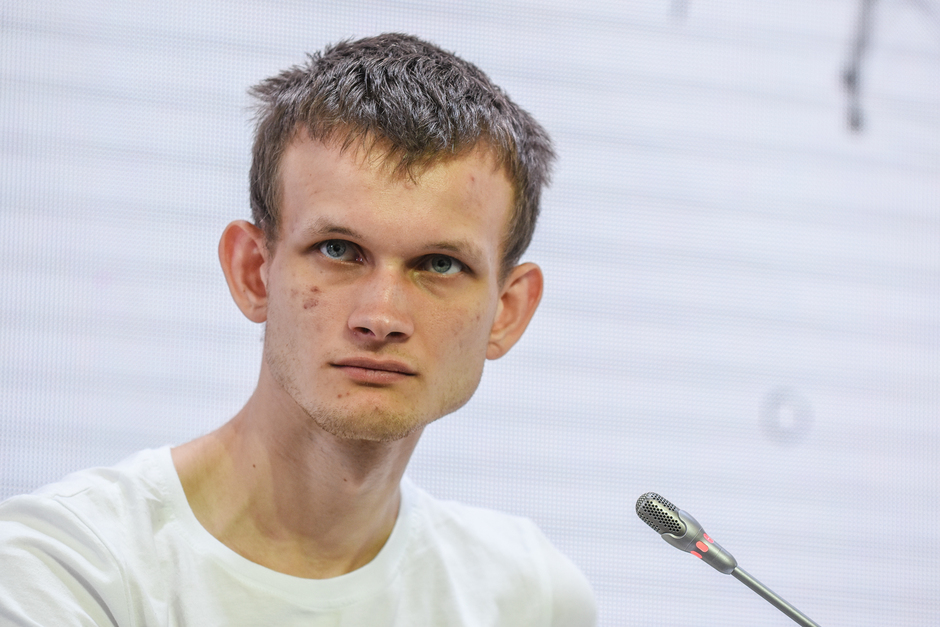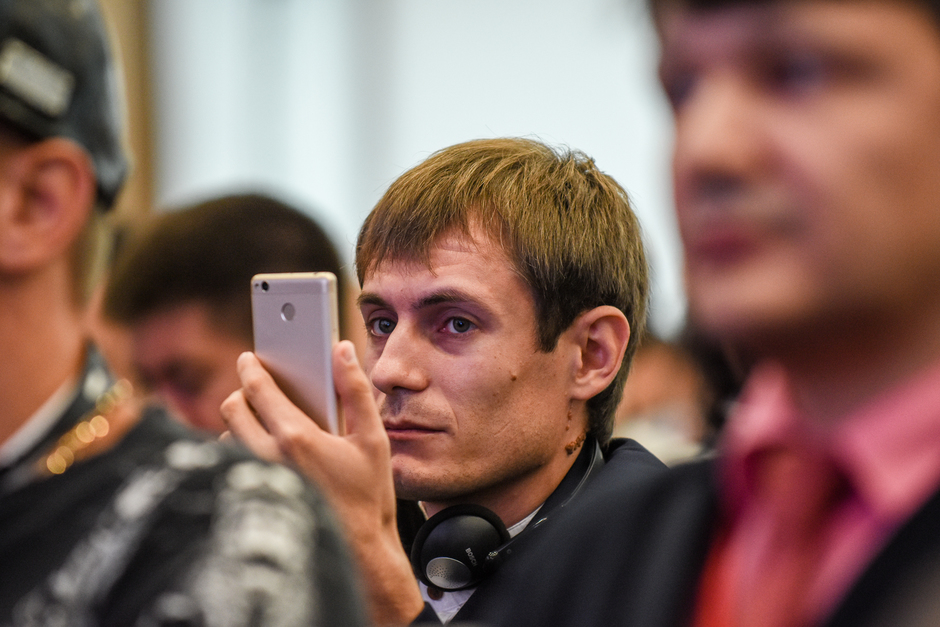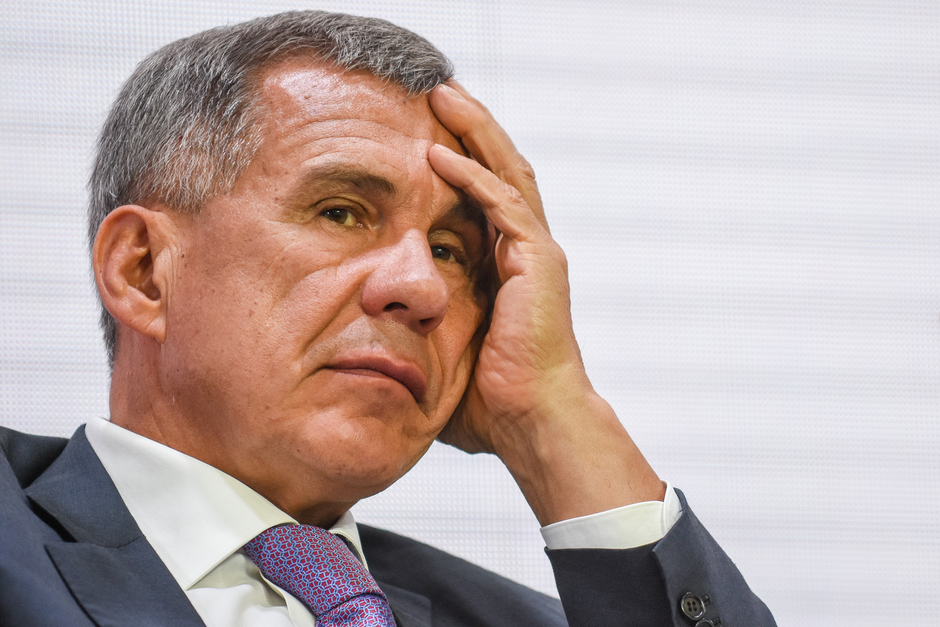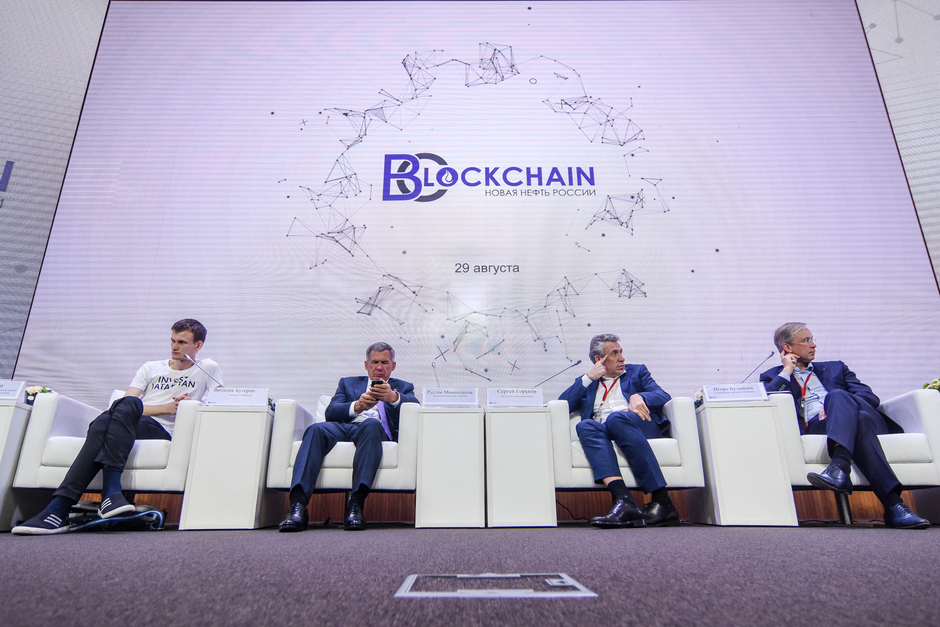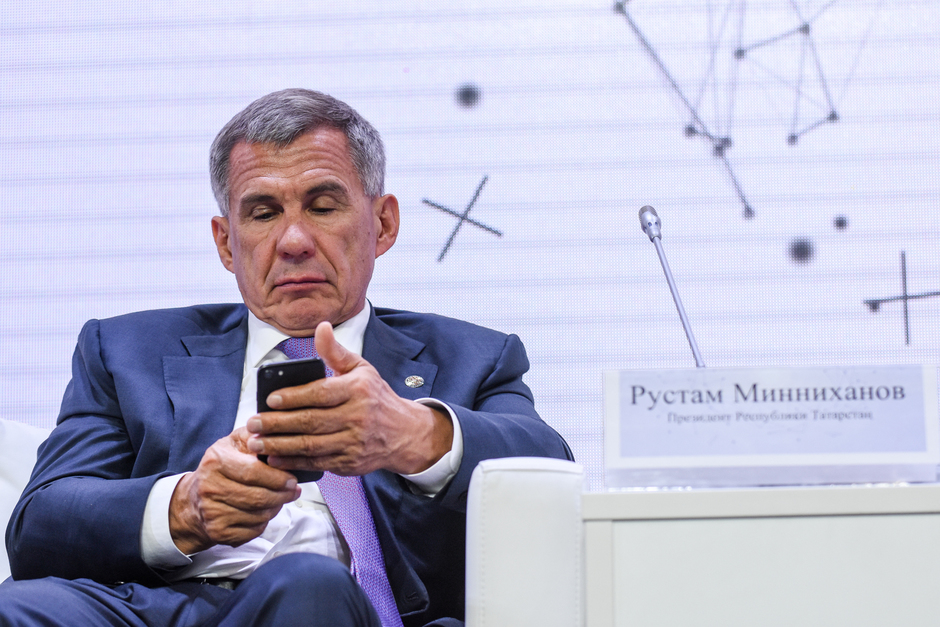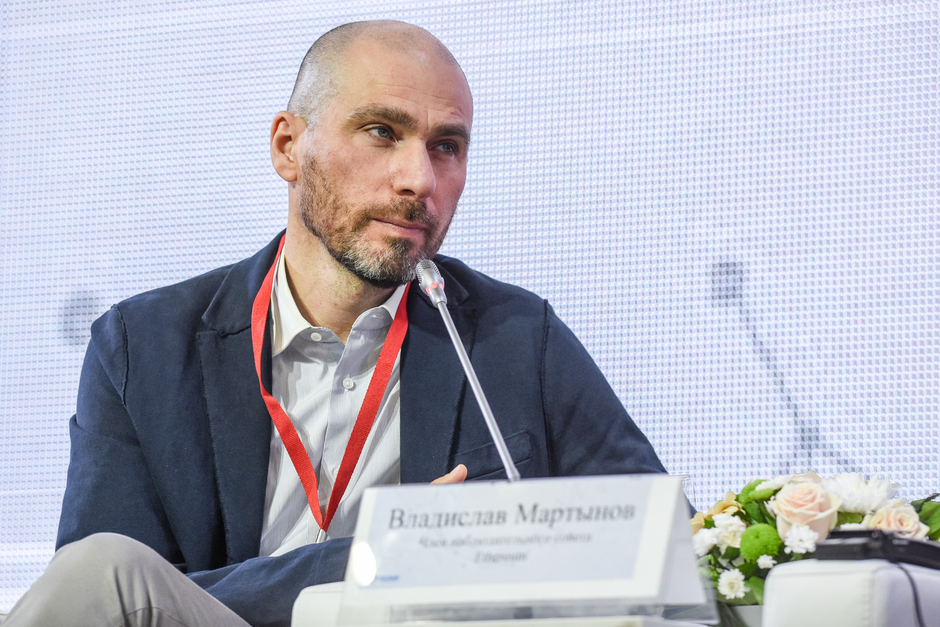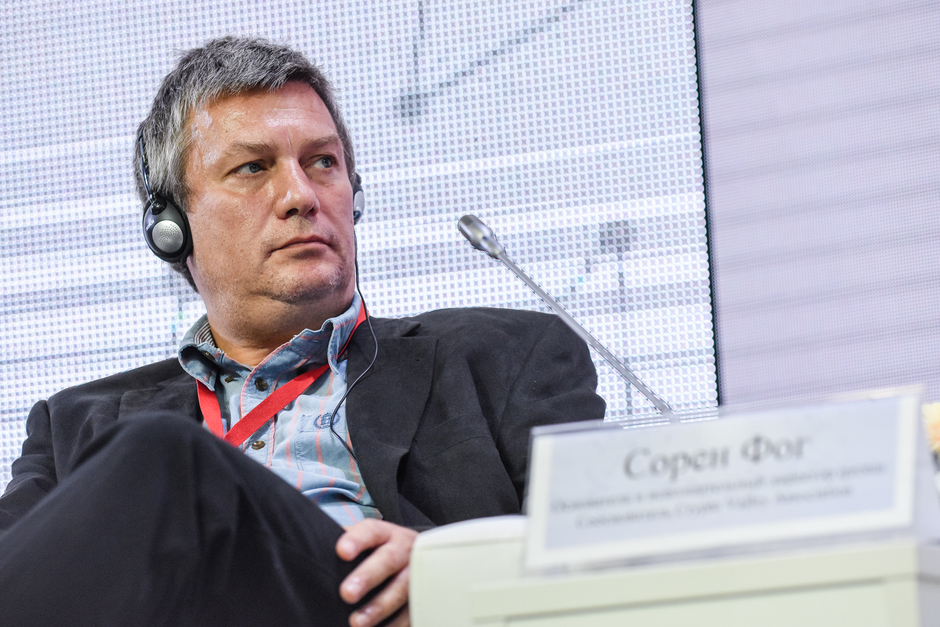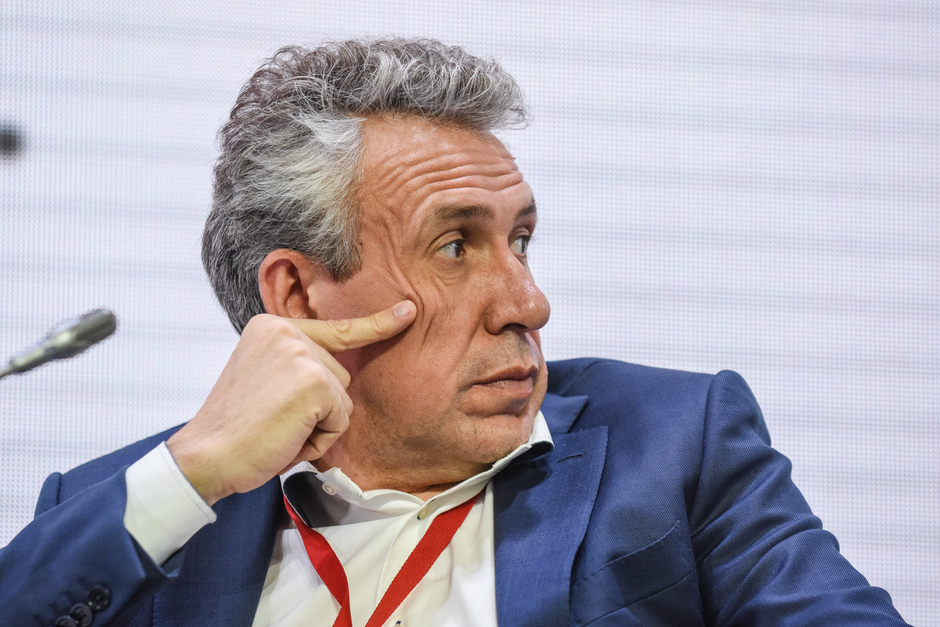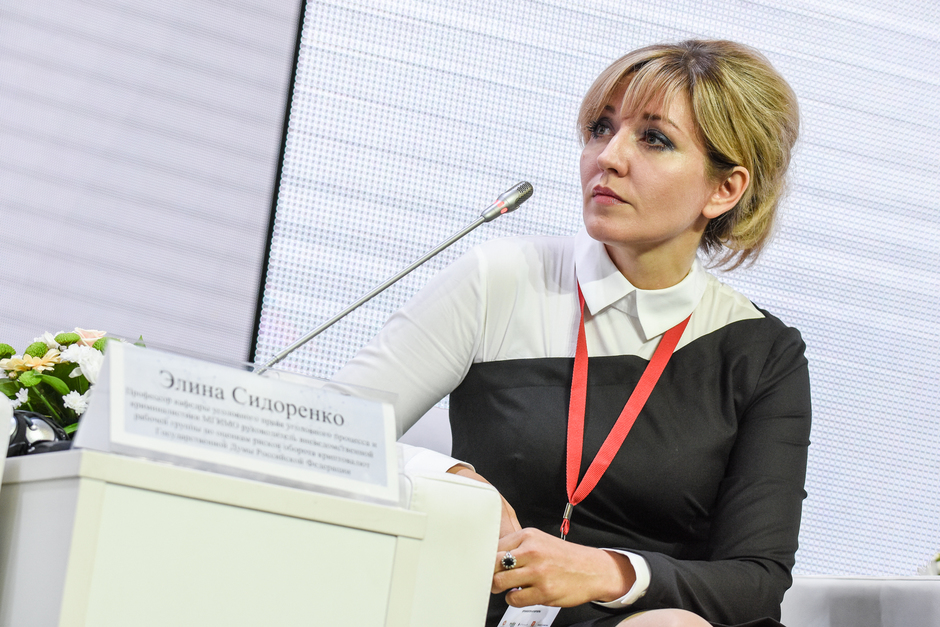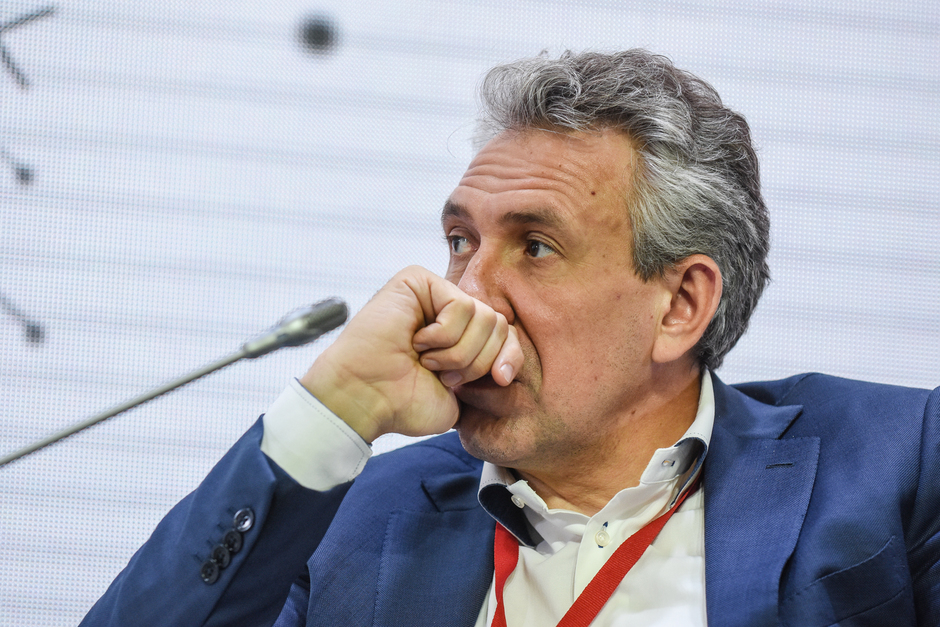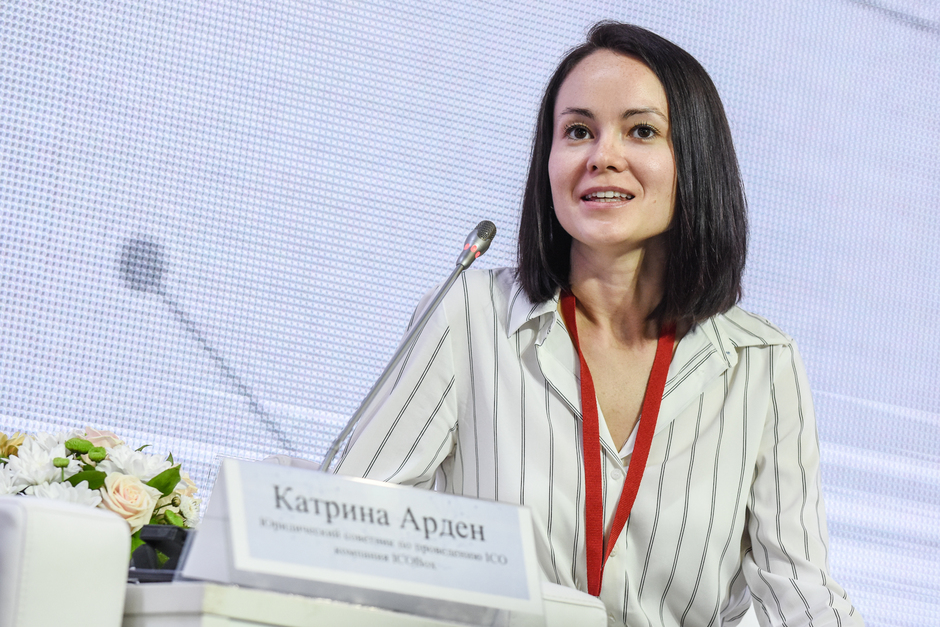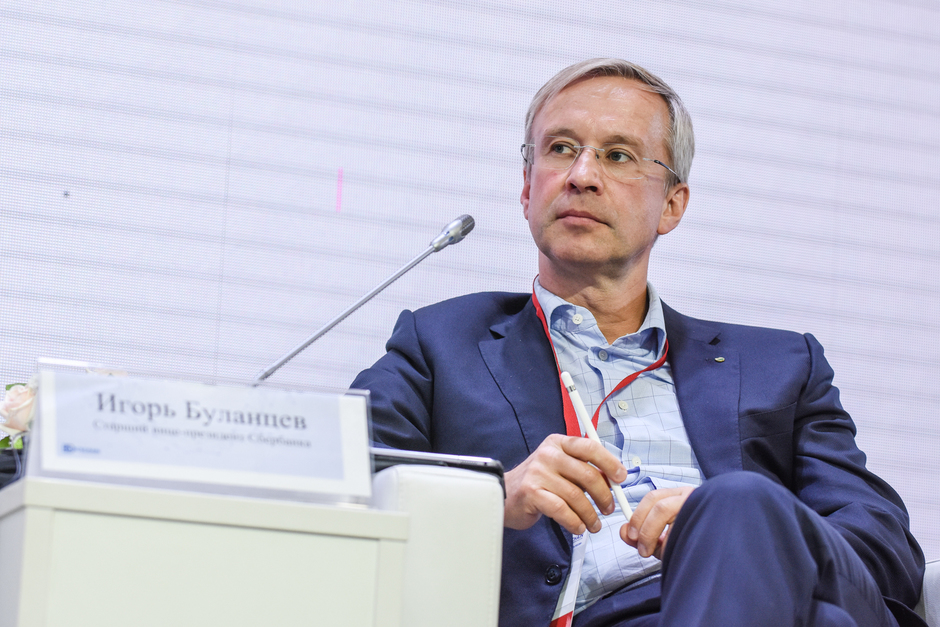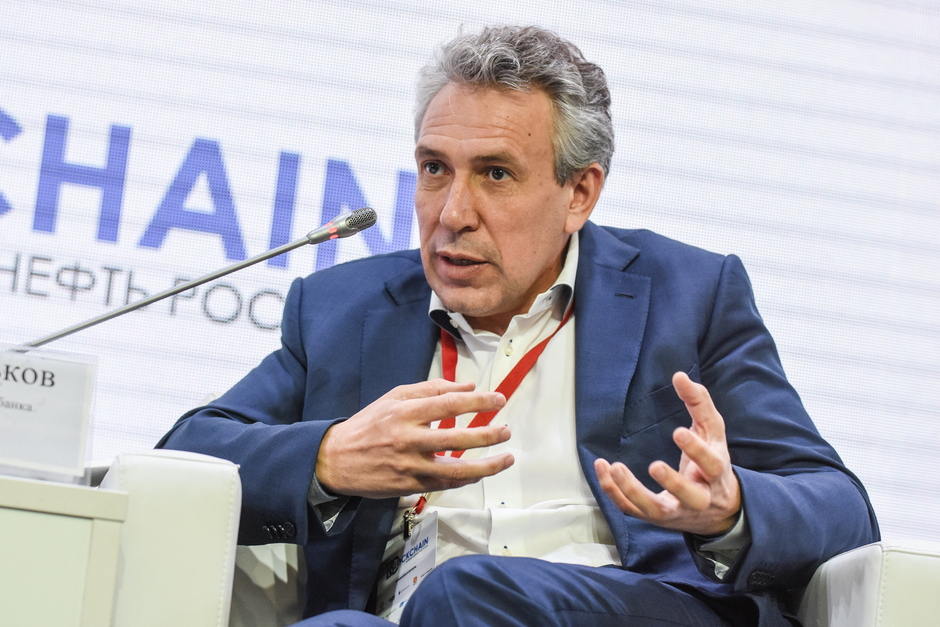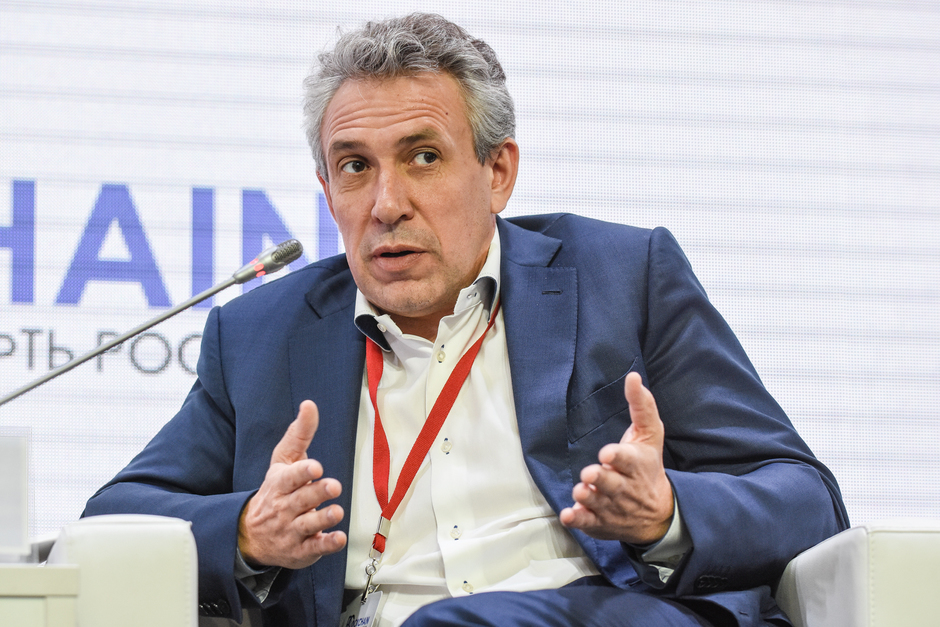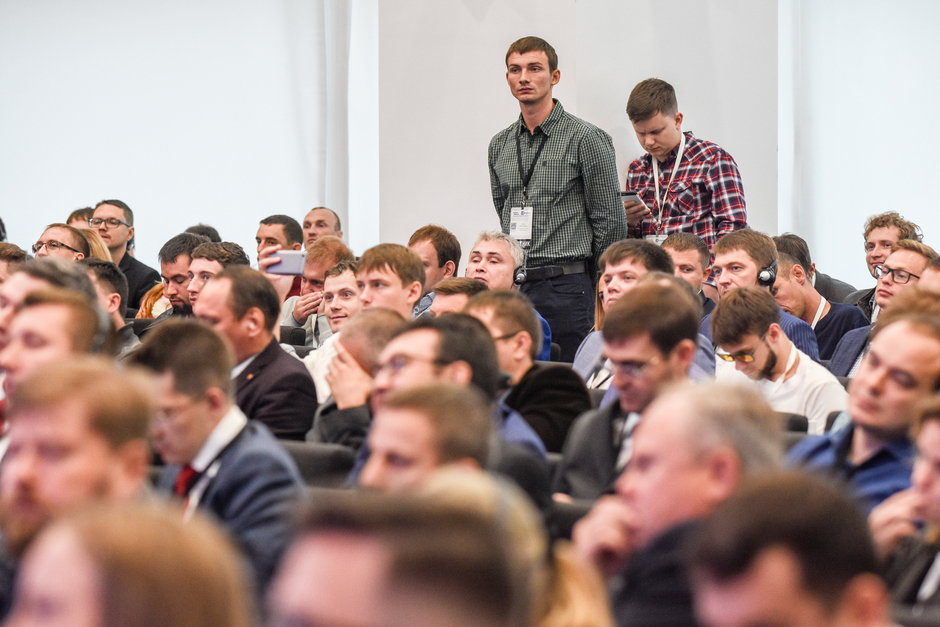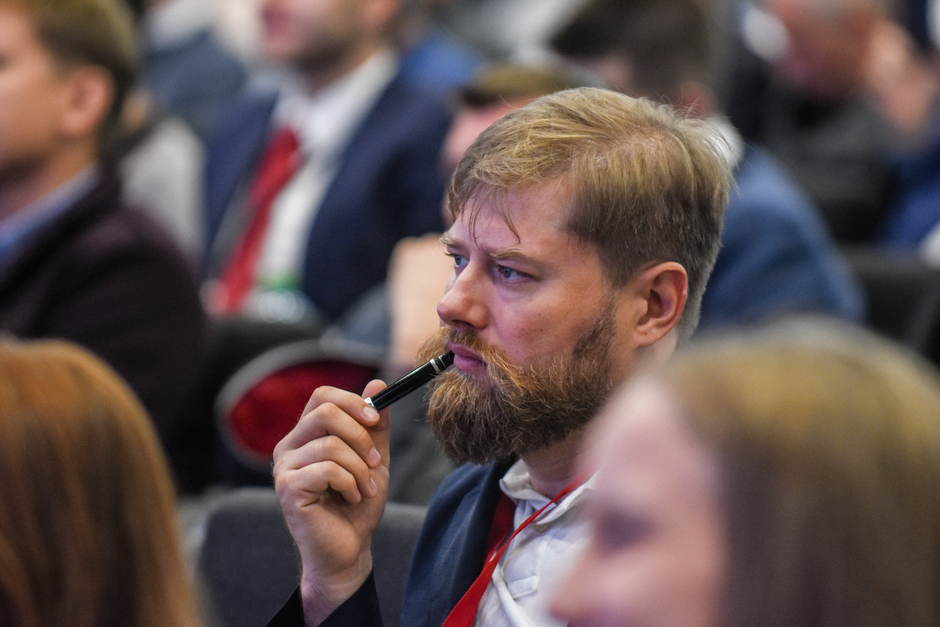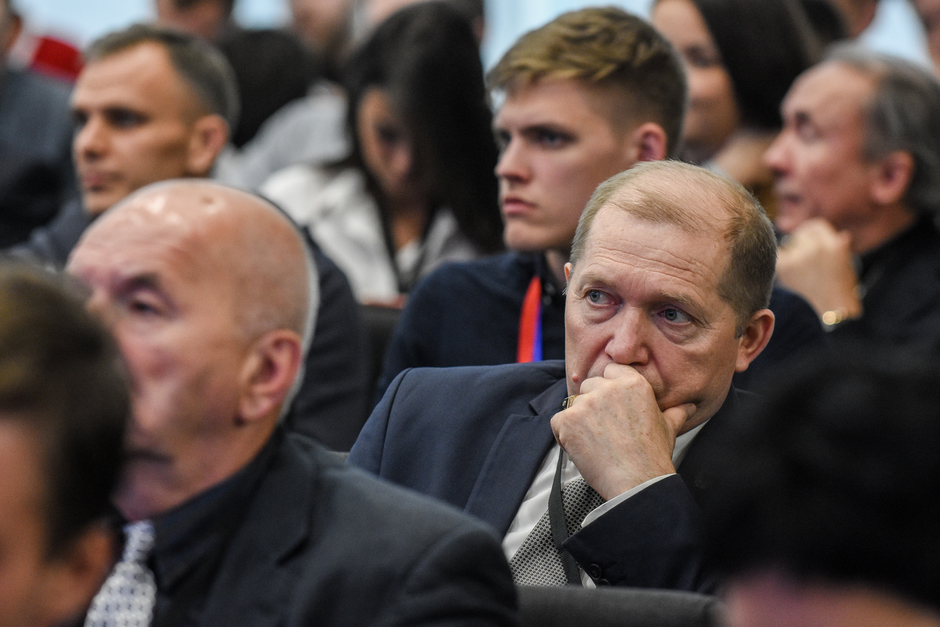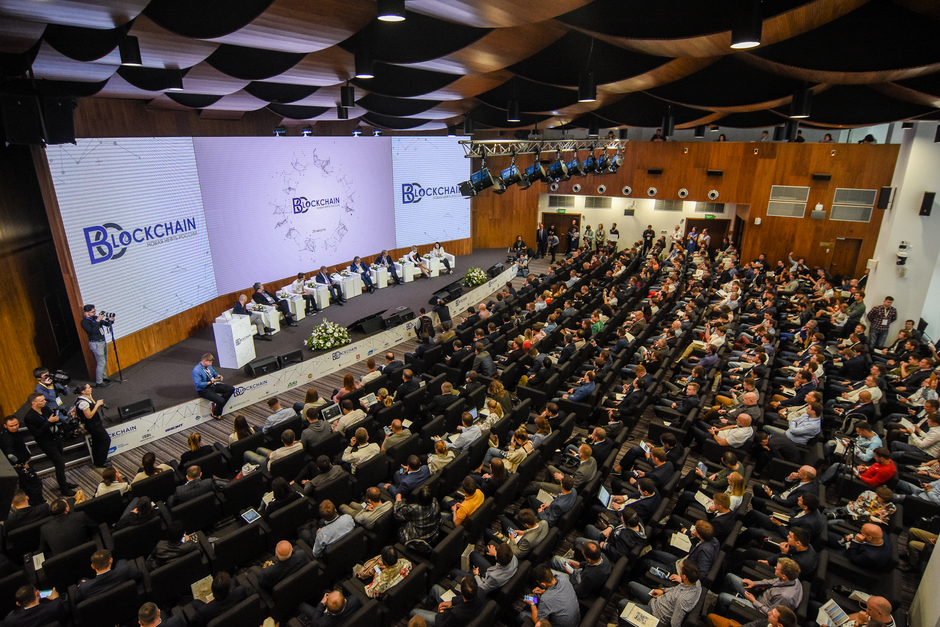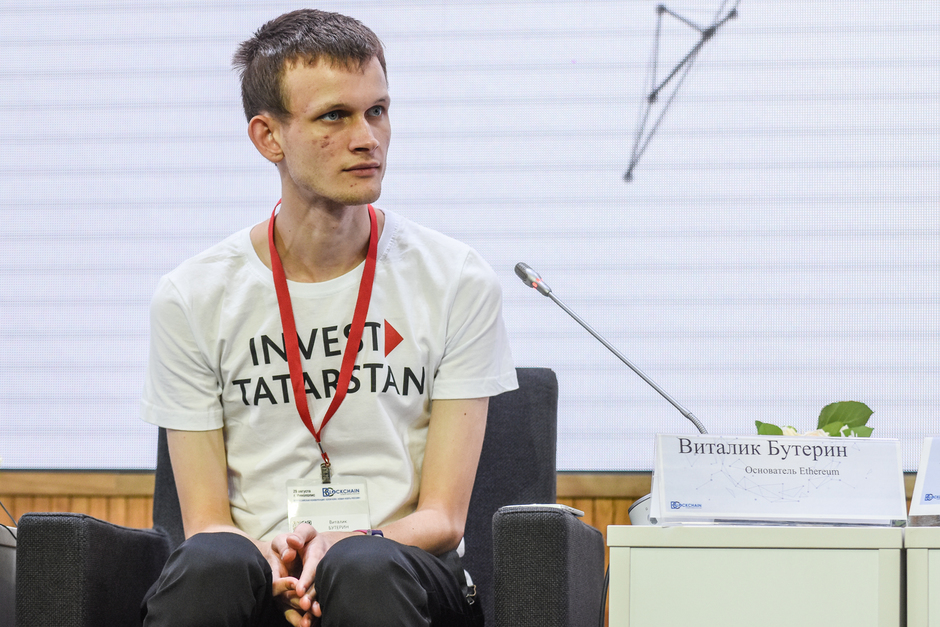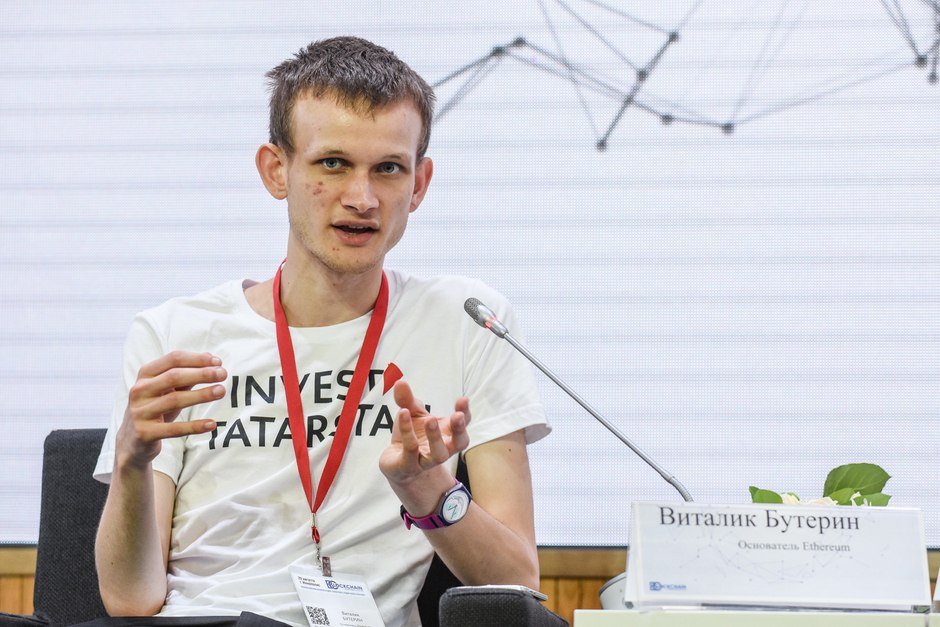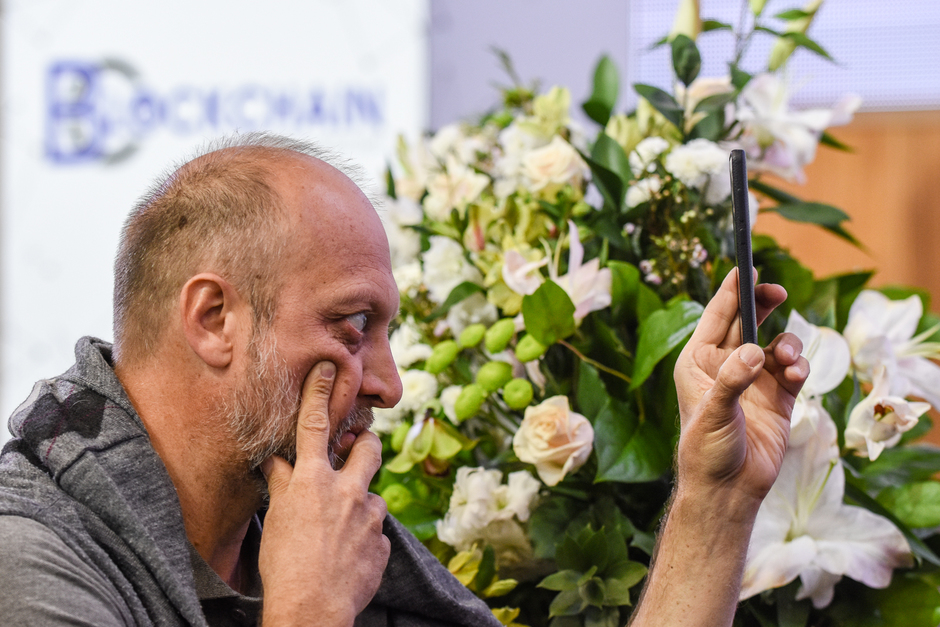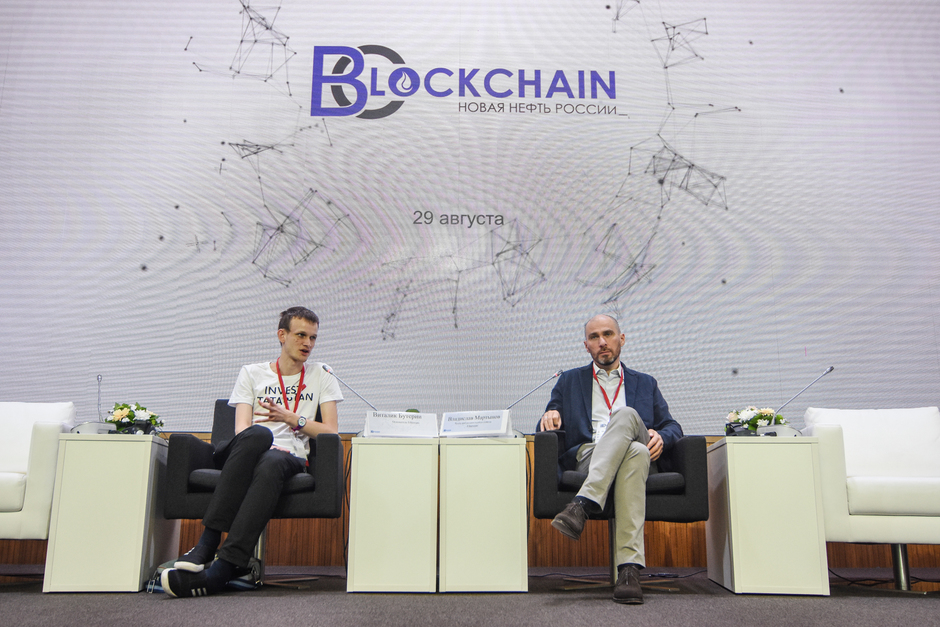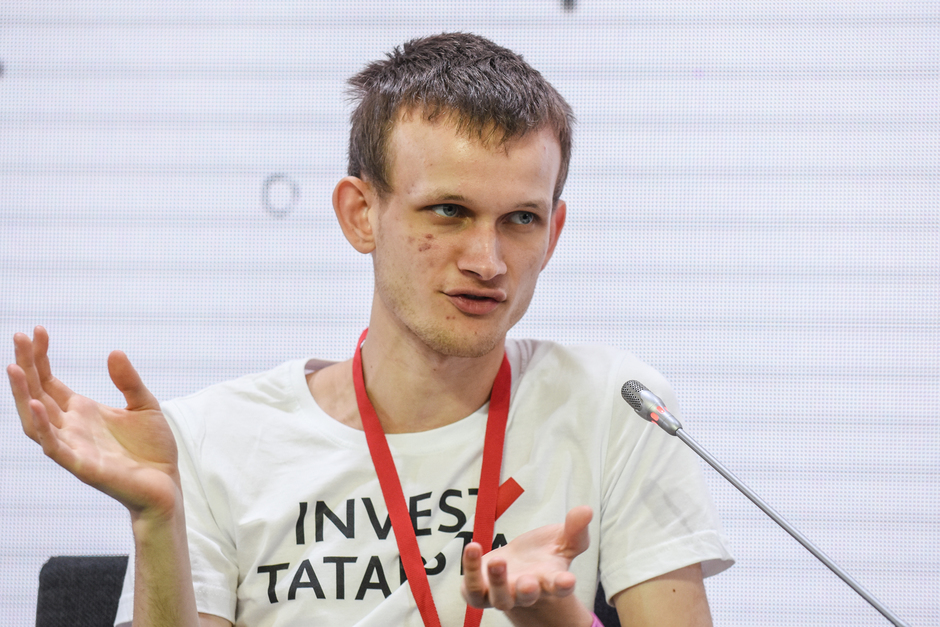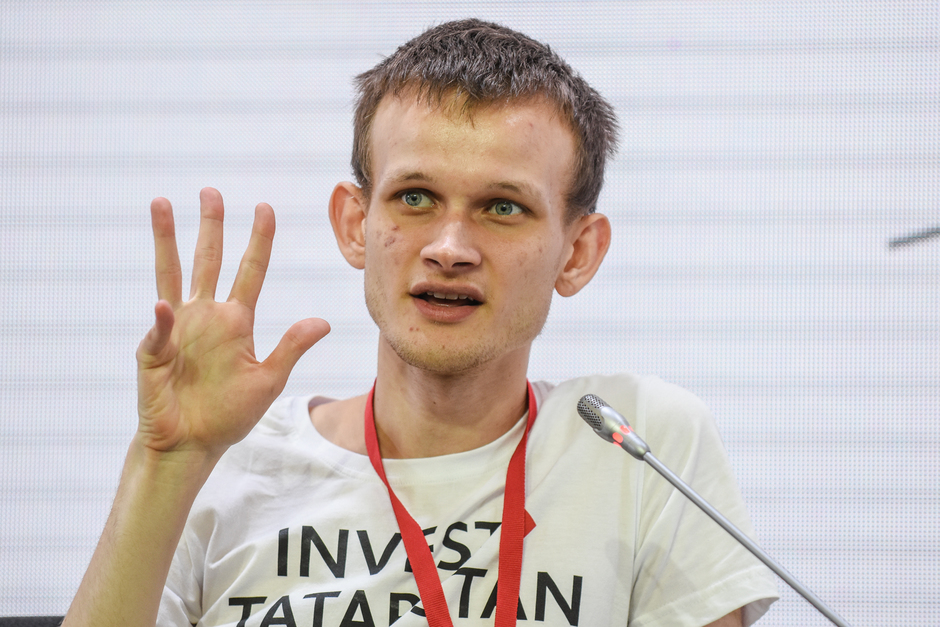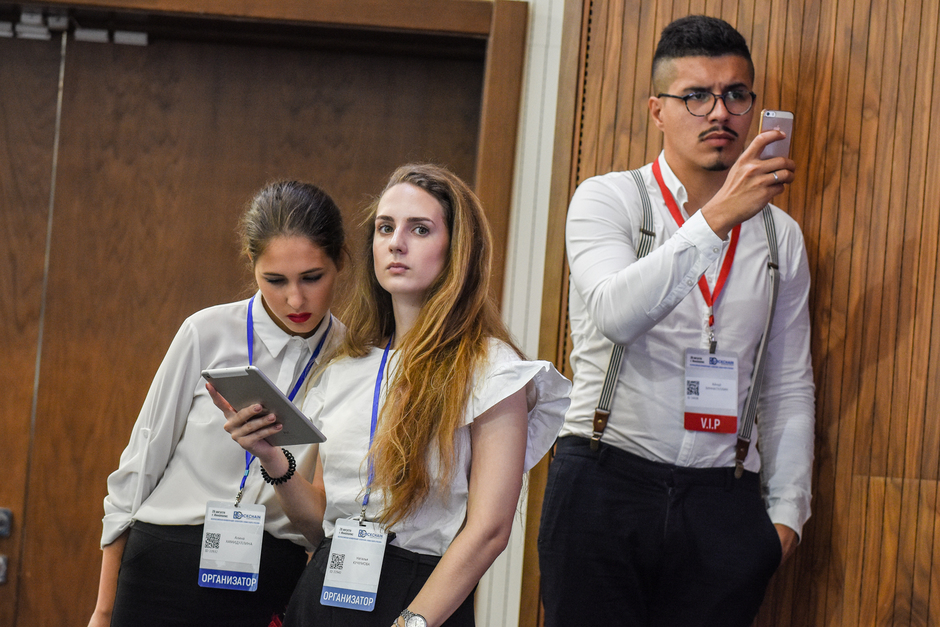''Bitcoin is rather gold than a currency''
The excitement around cryptocurrencies has not decreased since the Bitcoin rate suddenly rose this spring. All the media wrote about the ''money of the future'', the president of the country and his subordinates speak about it, different kinds of experts compete with each other in forecasts about the further fate of cryptocurrencies. And especially talented and ambitious people make money from this ''rush'' by publishing books, tutorials or giving masterclasses. But does an average citizen of Russia care about it? What do state functionaries who actively talk about cryptocurrencies know? Participants of ''Cryptocurrency: the Bundle Problem with the Real World'' debate that was held within ''Blockchain: Russia's New Oil'' conference tried to answer these questions.
What do Russians know about cryptocurrencies and blockchain?
This year experts of the National Agency of Financial Research (NAFR) held another all-Russian survey where 1,600 people took part to explain what the population thinks about cryptocurrencies and blockchain. If nobody knew about Bitcoins in 2015, the situation has noticeably changed – even there has been a category of people who use cryptocurrency. About 1/3 of the population knows about the existence of this technological phenomenon. In addition, the attitude to the ''money of the future'' has become more positive. By the way, people were asked to answer whether cryptocurrencies would replace fiat money or was it just temporary hype. And the results turned out very curious.
''Now the majority thinks it is just a kind of trend. However, the share of those who voted it was the money of the future is quite big – 31% in general in Russia,'' head of the area on research of financial technologies of NAFR research centre Sergey Antonyan shared. ''We also found out that some people think cryptocurrencies need to be banned because one can anonymously purchase banned things with it. Others suppose Bitcoin positively influences the economy. And the share of the first group reduced twice and the second group doubled, respectively.
The majority of the respondents supposed cryptocurrency ''rather a profitable investment''. However, if looking at the answers of people who know what it is well, we can see clear mistrust – this category of respondents just knows about the presence of high volatility and sudden rate rises. NAFR also wanted to ask the Russians whether they knew what blockchain was. It turned out that 16% of the population have ever heard about this technology. Men, the young and people with higher education had more information.
''Now all the currencies depend on the dollar, and the dollar depends on who knows what''
Organiser of the course of Ethereum decentralised applications at Innopolis Aleksandr Gryaznov heard Antonyan's speech out and expressed his attitude to such research and the current level of the population's awareness. His speech was severe but honest and frank. The audience bewitchingly listened to the speaker and almost stopped for clarifying questions for 20 minutes:
''I strongly believe that we don't need to explain to people why we need cryptocurrency. Instead, we need to develop their technical understanding of algorithms and the concept of blockchain. Let's consider this question within a standard paradigm and the organisation of things we all got used to: we have some means of exchange (money) and two sides – an issuer and a holder. Both have responsibility. But I will note that everybody forgot about the holder's responsibility a long time ago.
What I mean is that if somebody robs a bank where your money is, it is the bank's responsibility and you will be given your money back. If somebody hacks a smart contract or wallet, you can lose considerable sums forever. In the paradigm of the decentralised world, everyone is responsible for their money. You need to have certain technical knowledge to be able to assume this responsibility. I emphasise – technical knowledge. It is a new world we are entering now. The world with a high barrier to entry.''
Then he started to speak about the issuer's responsibilities, and the speaker asked the audience: ''Does anybody know what the ruble is backed by?'' One of the participants presupposed that it was gold. But Gryaznov replied the gold standard was completely cancelled in Russia as early as 1937. Not having heard a correct answer, the speaker decided to briefly tell about history:
''Earlier people liked gold very much. And it was the means of exchange because you can't make it – you can only find it, it is impossible to falsify it. All the countries switched to the gold standard quite a long time ago, including the USA who had a standard that the issuer in the person of the Central Bank or the Federal Reserve System ensures that if you bring $100, you will be given gold. As a result of WWII, European countries started to take their gold to the USA for safe custody. The Bretton Woods Agreement was signed in 1944, and it was offered to make the dollar closely dependent on gold at a fixed price, while other countries will depend on the dollar and they would have a fluctuating rate against the dollar, not gold. Nixon cut the dependence on the dollar on gold in 1971. Now all the currencies depend on the dollar, and the dollar depends on who knows what.
Now let's look at Bitcoin: Bitcoin by nature is not a valuable piece of paper. It has characteristics that are common to gold. Algorithmically, there can't be produced more than 21 million Bitcoins. The same thing happens to gold that exists on our planet in a limited number. A lot of work needs to be done to find gold. The same thing happens to Bitcoin – computing capacities need to be spent to solve mathematical tasks. Bitcoin is rather gold than a currency.''
Aleksandr Gryaznov: ''Bitcoin by nature is not a valuable piece of paper. It has characteristics that are common to gold''
''People with high IQ are here, and ordinary people think that GMO is awful''
Aleksandr Gryaznov also noted that, in his opinion, the topic of debates was not formulated correctly: ''I think actually the current real world in the person of governments has a problem of connection with cryptocurrency. This is why authorities can't make a decision quickly and make laws because one needs to choose a more sensible way here. One of the founders of Emercoin cryptocurrency Stanislav Polozov also joined the discussion of relations between authorities and cryptocurrencies and security in this sphere. He stated that many state functionaries are afraid of using cryptocurrency like because it is a very anonymous means of payments.
''Actually, it is a completely wrong presupposition. In general, there are many ''urban legends'' about this topic. Sergey told how they surveyed the population about what it thinks. In my opinion, the population doesn't think anything – it thinks in the way the media delivered it. It is useless to ask tractor driver Uncle Vasya what he thinks about cryptocurrencies, blockchain and Bitcoin. If it is said on TV it is good, he will think it is good. For instance, does everybody know that GMO is bad, right?'' surprised participants started to look at each other in silence, somebody shook their heads in disbelief. ''People with high IQ are here, and ordinary people think that GMO is awful.''
According to Polozov, people mistakenly think that cryptocurrency payments are completely anonymous for some reason. However, it is a serious error – such payments are told on incomparably easier than usual fiat payments because the history of your wallet is in blockchain. Stanislav Polozov assured the audience that all the technology is as safe and transparent as possible for the government. However, Aleksandr Gryaznov joined here with a remark.
''What you are saying is about Bitcoin blockchain. But there are a lot of blockchains. In addition, there are new solutions that solve the problem of anonymity.''
''These crypts have not been accepted as main…''
''But nobody accepts anything main now. When our state says that we have Masterchain and we are such cool guys… Just so you understand, Masterchain is a Ethereum's fork. No country has its own national blockchain now,'' Gryaznov defended.
Obviously, any country will like blockchain where everything is really written down forever and there is no problem of anonymity. However, as Aleksandr Gryaznov noted, now the world has blockchains that work completely anonymously. And, of course, no country will want to accept them.
